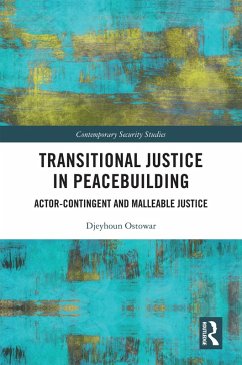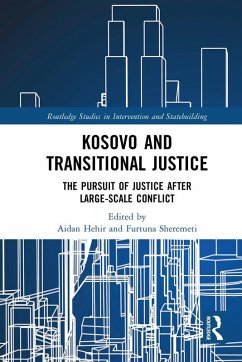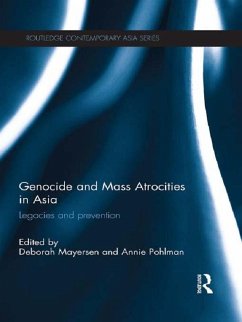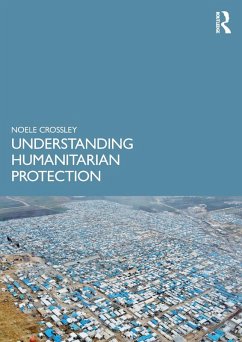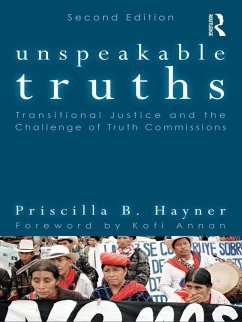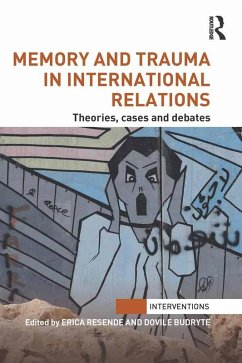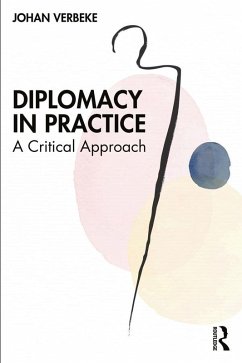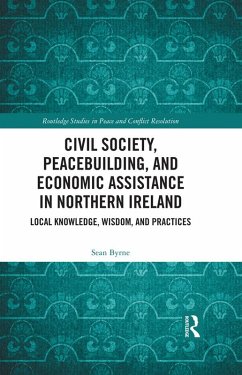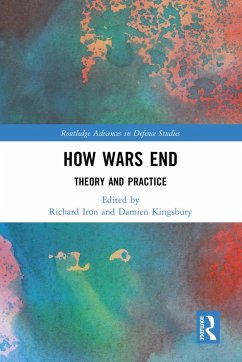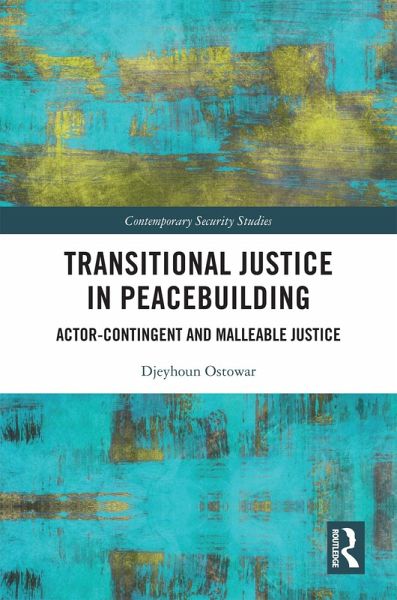
Transitional Justice in Peacebuilding (eBook, ePUB)
Actor-Contingent and Malleable Justice
Versandkostenfrei!
Sofort per Download lieferbar
41,95 €
inkl. MwSt.
Weitere Ausgaben:

PAYBACK Punkte
21 °P sammeln!
This book explores the role of actors in determining transitional justice in peacebuilding contexts.In recent decades, transitional justice mechanisms and processes have been introduced to a variety of settings, becoming widely regarded as essential elements in the 'peacebuilding toolbox'. While it has increasingly been suggested that transitional justice is imposed by neo-imperial actors with little regard for the needs and cultures of local populations, evidence suggests that dismissing these policies as neo-imperial or neo-liberal impositions would result in grossly overlooking their dynami...
This book explores the role of actors in determining transitional justice in peacebuilding contexts.
In recent decades, transitional justice mechanisms and processes have been introduced to a variety of settings, becoming widely regarded as essential elements in the 'peacebuilding toolbox'. While it has increasingly been suggested that transitional justice is imposed by neo-imperial actors with little regard for the needs and cultures of local populations, evidence suggests that dismissing these policies as neo-imperial or neo-liberal impositions would result in grossly overlooking their dynamics, which involve a whole range of relevant actors operating at multiple levels. This book interrogates this theme through empirical analysis of three sites of peacebuilding that have seen extensive international involvement: Kosovo, East Timor and Afghanistan. It proposes a novel framework for analysing and approaching transitional justice in peacebuilding that disaggregates three broad sets of actors operating at different levels in relevant processes: external actors (international and regional levels), transitional justice promoters (local, national, international and transnational levels), and transitional regimes (national and local levels). The book argues that transitional justice in peacebuilding must be conceived of as actor-contingent and malleable due to the significance of agency and (inter)actions of key categories of actors throughout peacebuilding transition.
This book will be of interest to students and practitioners of transitional justice, peacebuilding, law, and International Relations.
In recent decades, transitional justice mechanisms and processes have been introduced to a variety of settings, becoming widely regarded as essential elements in the 'peacebuilding toolbox'. While it has increasingly been suggested that transitional justice is imposed by neo-imperial actors with little regard for the needs and cultures of local populations, evidence suggests that dismissing these policies as neo-imperial or neo-liberal impositions would result in grossly overlooking their dynamics, which involve a whole range of relevant actors operating at multiple levels. This book interrogates this theme through empirical analysis of three sites of peacebuilding that have seen extensive international involvement: Kosovo, East Timor and Afghanistan. It proposes a novel framework for analysing and approaching transitional justice in peacebuilding that disaggregates three broad sets of actors operating at different levels in relevant processes: external actors (international and regional levels), transitional justice promoters (local, national, international and transnational levels), and transitional regimes (national and local levels). The book argues that transitional justice in peacebuilding must be conceived of as actor-contingent and malleable due to the significance of agency and (inter)actions of key categories of actors throughout peacebuilding transition.
This book will be of interest to students and practitioners of transitional justice, peacebuilding, law, and International Relations.
Dieser Download kann aus rechtlichen Gründen nur mit Rechnungsadresse in A, B, BG, CY, CZ, D, DK, EW, E, FIN, F, GR, HR, H, IRL, I, LT, L, LR, M, NL, PL, P, R, S, SLO, SK ausgeliefert werden.




